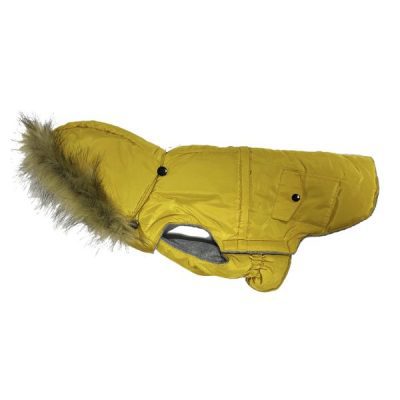Protect Your Dogs & Cats This Flu Season
If there’s one thing that nearly everyone can relate to at the moment, it’s the dreaded end-of-year flu. We’ve all been stocking up on tissues and wishing for that annoying cough to go away, but there’s another member of our household that we forget is battling a flu of their own: our dogs and cats.
While canine and feline influenza isn’t as common as human influenza, it’s still a nuisance for the afflicted animal and can make pet owners worried since they may not be used to treating pet flu.
It goes without saying that you should visit your local vet first and foremost if your pet is under the weather, but there are ways to spot the symptoms of pet flu and keep your dogs and cats as happy as possible in this tough time. It also spreads via contaminated surfaces like human flu, so remember to regularly clean areas where your pet may occupy.
(Please note: dog flu can’t be spread to cats, and cat flu can’t be spread to dogs.)
Symptoms of Dog Flu
- A moist or dry cough
- A fever
- Difficulty breathing
- Lethargy
- Low appetite
- Nasal discharge
- Purulent nasal discharge (pus)
- Runny eyes & nose
- Sneezing
Symptoms of Cat Flu
- A fever
- Limping
- Low appetite
- Nasal discharge
- Pneumonia
- Possible eye-related symptoms like conjunctivitis
- Salivating or drooling
- Sneezing
- Sore throat
Dogs and cats will usually recover from flu in 2 to 3 weeks, but like with human flu, it’s good to give them some TLC in the meantime.
There’s a few simple things you can do at home that apply to both dogs and cats:
- Keep your pets cool with a pet cooling mat.
- Ensure they have regular access to fresh drinking water, preferably from a clean metal or ceramic bowl, since plastic allows flu germs to spread easier.
- Clean your pets’ eyes with eye wipes at fairly regular intervals. If necessary, apply eye gel to prevent long-term damage from dry and irritated eyes.
- Wipe their noses if you spot nasal discharge – we don’t sell nose wipes, so just use a tissue or antibacterial wipe if possible.
- Your vet may prescribe medication to help your pet recover and keep them comfortable. They may also give your dog or cat a flu shot.
For specifically dogs:
- If you’ve got other dogs, make sure to put the afflicted dog in a secure, well-ventilated room to prevent it from spreading. And when out on walks, try to keep them from mingling with other dogs.
- Barking can strain your dog’s throat so if you’re able to, reduce the conditions where your dog might be prone to bark.
For specifically cats:
- Give them wet food to eat as it’ll keep them hydrated.
Dog and cat flu is certainly a pain at this time of year, especially if you’re under the weather yourself, but the symptoms can be treated with ease, and you’ll have a happy pet again in no time. For any questions, queries or concerns, contact us on Facebook.










